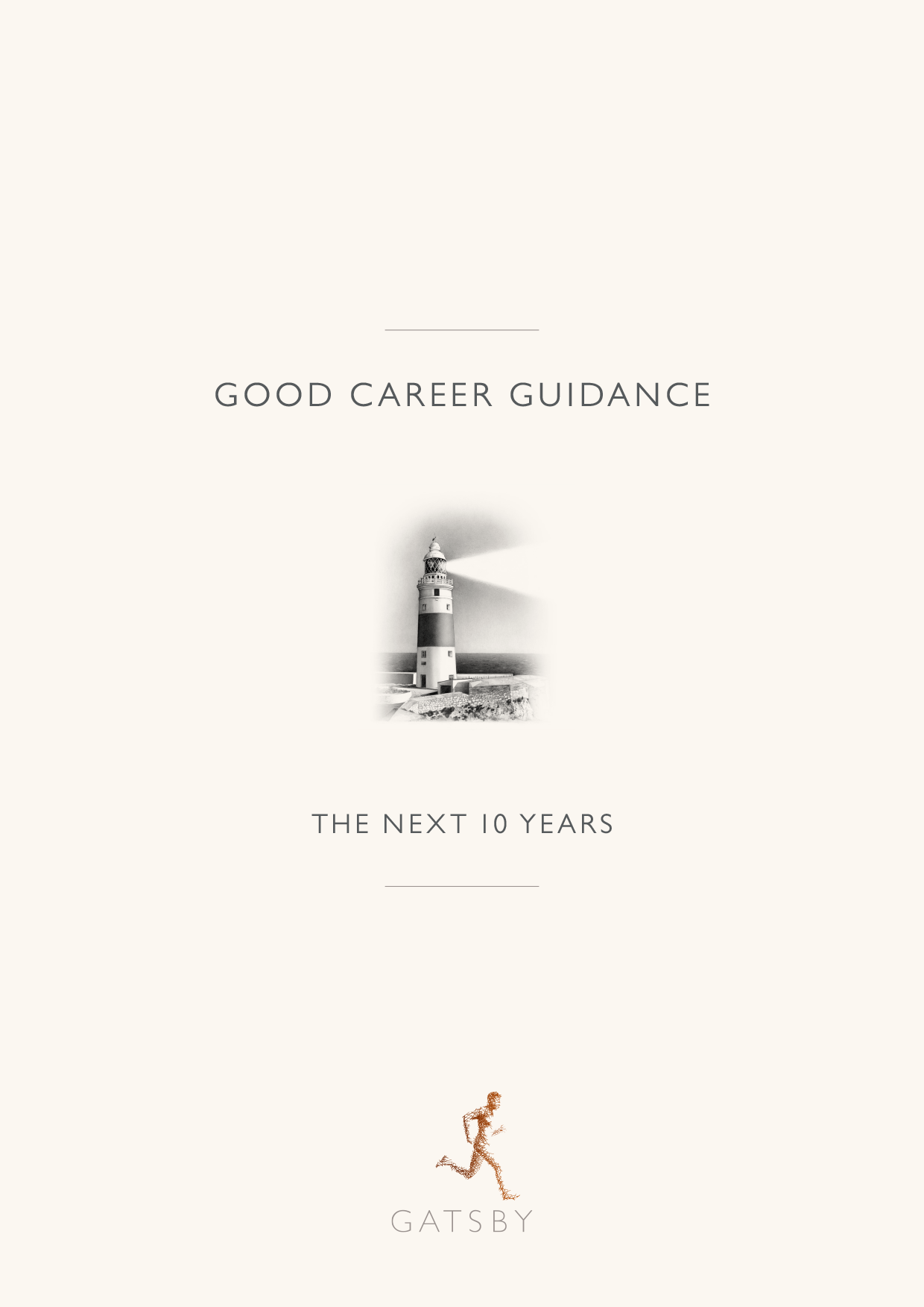A guide toGatsby Benchmark 7
Encounters with further and higher education
All pupils should understand the full range of learning opportunities that are available to them, including academic, technical and vocational routes. This should incorporate learning in schools, colleges, independent training providers (ITPs), universities and in the workplace.

Criteria for Schools
- By the age of 16, every pupil should have had meaningful encounters with providers of the full range of learning opportunities, including sixth forms, colleges, universities and ITPs.
- By the age of 18, all pupils who are considering applying to higher education should have had at least two visits to higher education providers to meet staff and learners.
All learners should understand the full range of learning opportunities that are available to them, including academic, technical and vocational routes. This should incorporate learning in schools, colleges, independent training providers (ITPs), universities and in the workplace.



Criteria for Colleges and ITPs
- By the end of their programme of study, every learner should have had a meaningful encounter with a range of providers of learning and training that may form the next stages of their career. This should include, as appropriate, further education colleges, universities and ITPs. This should include the opportunity to meet both staff and learners.
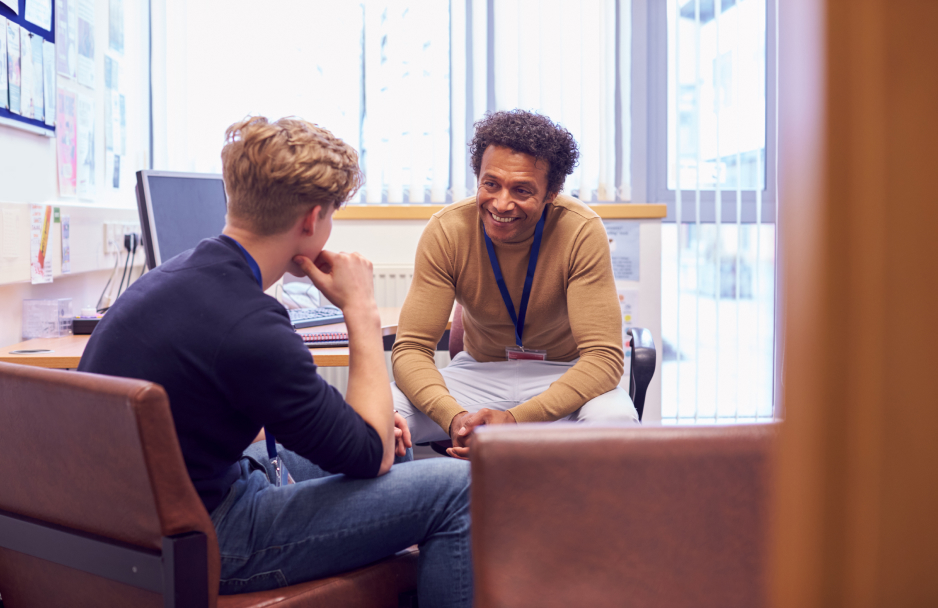

Definition of ‘Meaningful’ for Benchmark 7
A meaningful encounter gives the young person the opportunity to explore what it is like to learn, develop and succeed in that environment. This should include the opportunity to meet both staff and learners/trainees. Throughout a careers programme, encounters should be sequenced so that a young person can build up a clear picture of opportunities available to them. Experiences or encounters could be in person or a combination of in person and virtual and could include providers delivering sessions in a school, college or ITP, as well as young people visiting the provider. Young people and providers should be supported to prepare for the encounter. Additional or different support may be needed for vulnerable and disadvantaged young people and for young people with special educational needs and disabilities (SEND).
A meaningful encounter will:
- have a clear purpose, which is shared with the provider and the young person
- be underpinned by learning outcomes that are appropriate to the needs of the young person
- involve a two-way interaction between the young person and the provider
- include information about the provider, such as their recruitment and selection processes, the qualifications that provider offers and the careers these could lead to
- describe what learning or training with the provider is like
- be followed by opportunities for the young person to reflect on the insights, knowledge or skills gained through the encounter
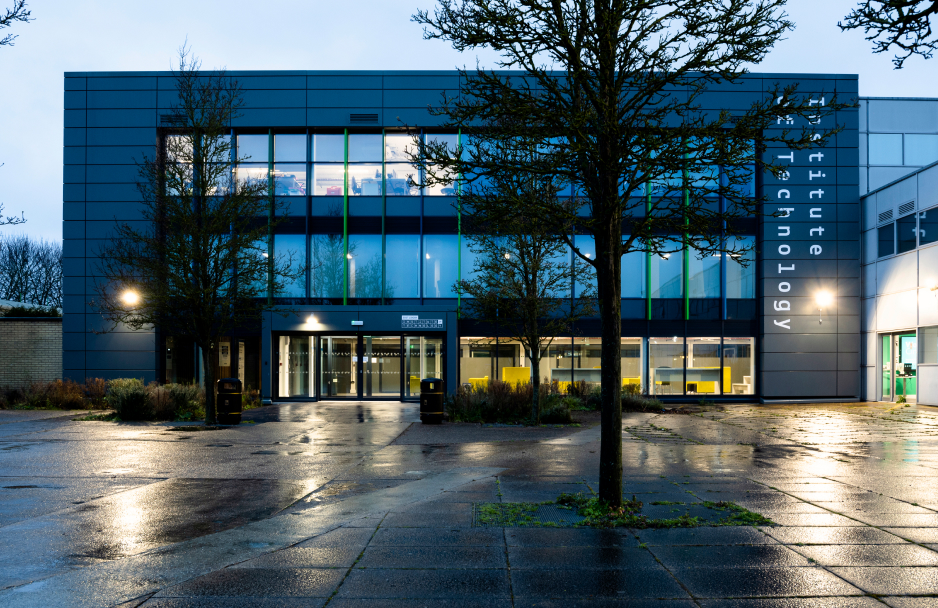

Sector Example: Apprenticeship Support & Knowledge (ASK) programme
The Apprenticeship Support & Knowledge (ASK) programme supports schools and colleges to increase the awareness of apprenticeships and T-levels among young people, their parents and carers, teachers and careers advisers. It offers a variety of activities, workshops, webinars and resources that are delivered by local experts.
A meaningful encounter can take many forms.
Good Career Guidance: The Next 10 Years
Case Study: Sunderland College
Sunderland College offers encounters to local schools that are tailored to their individual requirements. These can be based either at the college or in school.
The encounters complement the information, advice and guidance that pupils have already been given. The college maps all the encounters it offers against provider access legislation requirements, showing how each can help schools fulfil the legislation. Activities offered as part of an encounter include:
- talks to classes or assemblies delivered by college curriculum staff, pastoral staff and current students
- participation in careers fairs for all year groups
- application clinics and mock interviews
- college campus visits for all year groups
- discovery days and subject-specific visits for different age groups to either explore what studying at the college is like, or explore different subject facilities and courses
- college staff attending school parents’ and carers’ evenings and other events, to speak to parents and carers directly
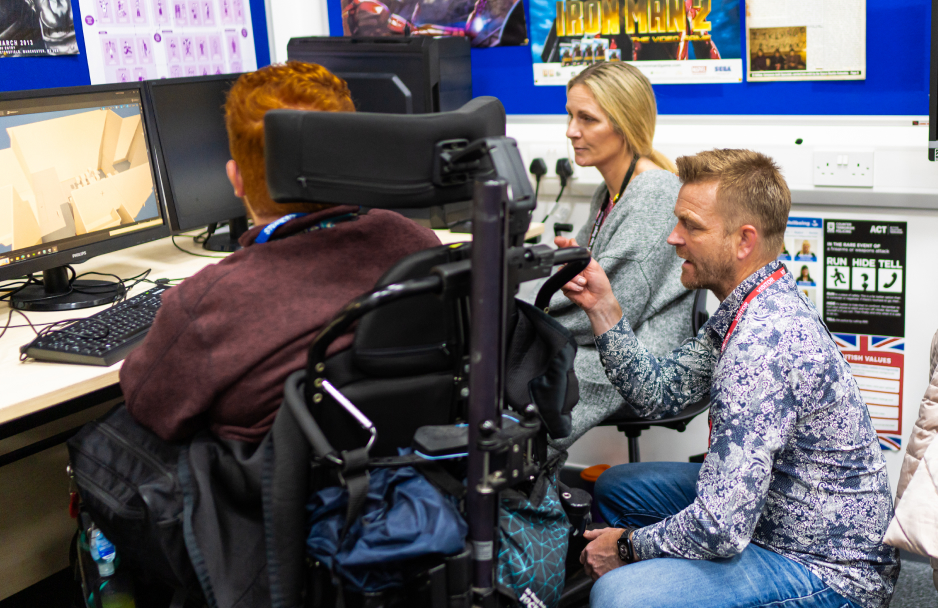

Sector Example: Institutes of Technology
Institutes of Technology (IoTs), located across England, are “a national network of FE [further education] colleges, universities and leading industry employers, working in close partnerships to deliver world-class technical education and training” across a range of science, technology, engineering and mathematics (STEM) occupations.
The IoT partnership model means they are well placed to provide pathways from 16-18 education into higher technical qualifications (HTQs), apprenticeships, degrees and employment in their regions.
IoTs work closely with schools to offer meaningful encounters to young people.
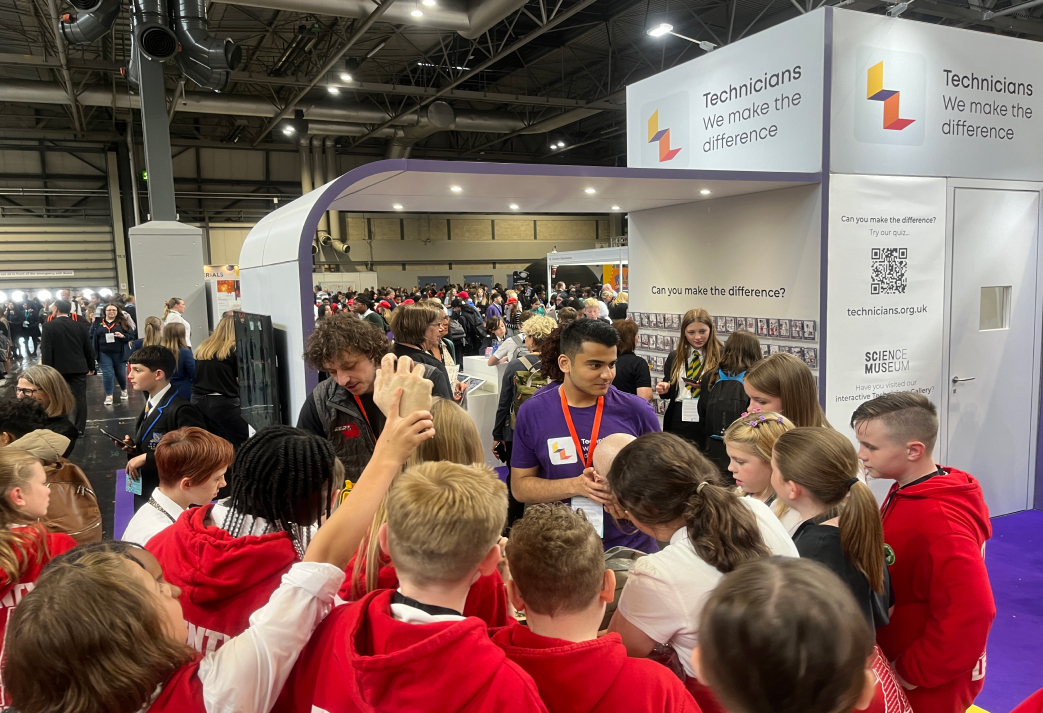

Sector Example: Uni Connect programme
Uni Connect is a scheme run by the Office for Students which “brings together … universities, colleges and other local partners to offer activities, advice and information on the benefits and realities of going to university or college”.
The programme seeks to ensure that a young person’s “access to higher education is not limited by their background, location or characteristics”.
The programme uses existing local infrastructure, and evaluation of the programme states that it has proven to be an “efficient and low-burden” way for schools and colleges to engage with higher education.
Jump to Benchmark
Gatsby Benchmark 1
A stable careers programme
Gatsby Benchmark 2
Learning from career and labour market information
Gatsby Benchmark 3
Addressing the needs of each young person
Gatsby Benchmark 4
Linking curriculum learning to careers
Gatsby Benchmark 5
Encounters with employers and employees
Gatsby Benchmark 6
Experiences of workplaces
Gatsby Benchmark 7
Encounters with further and higher education
Gatsby Benchmark 8
Personal guidance
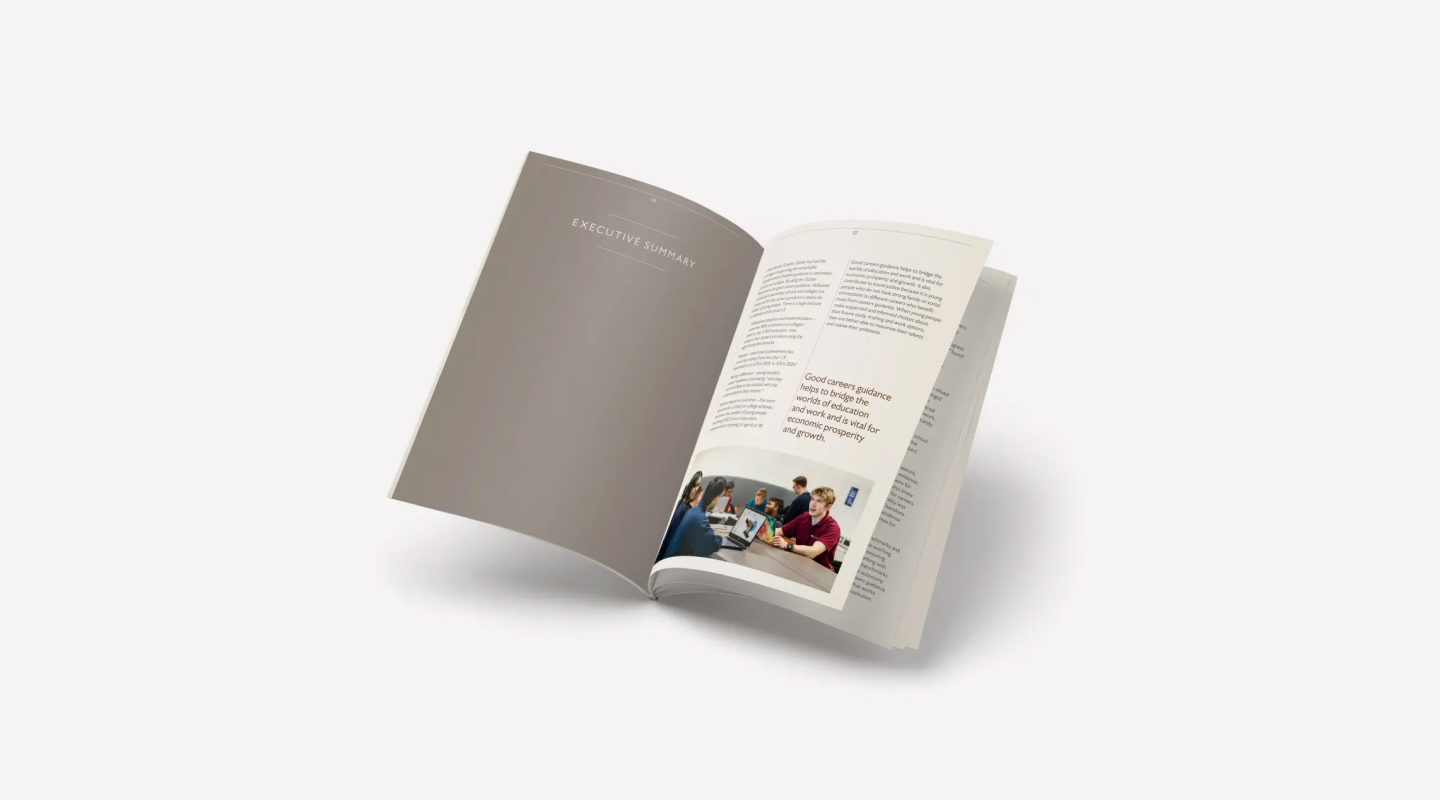

Publications
Browse our full collection of downloadable resources, including the reports themselves, associated appendixes and supporting literature.
